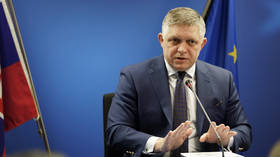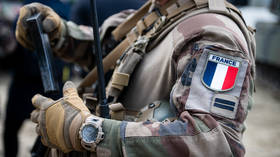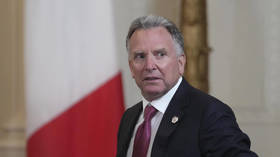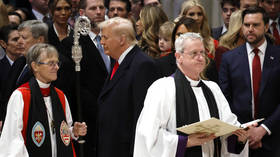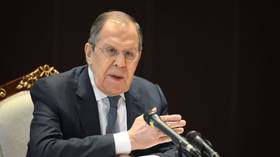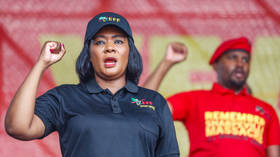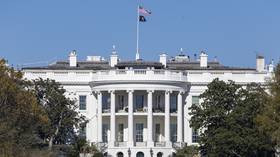EU ready to discuss new energy accords with Russia
The EU leadership said at the Russia-EU summit in Khabarovsk, that it was prepared to discuss Russian proposals to draft new legal agreements regulating international energy cooperation.
With nothing signed and no breakthroughs, the summit has been little more than a talking-shop. The European Union officials have traveled a long way to come here, but there is an even longer way to go to overcome the political distance between Moscow and Brussels.
Russian President Dmitry Medvedev says he hopes for further discussions of Russia’s proposals in the sphere of energy cooperation with the EU, and in his view, the Union’s leaders expressed interest in that idea. The President also stressed that it is “obviously for the benefit” of the European partners.
“I welcome President Medvedev to discuss updating the energy charter treaty,” said Jose Manuel Barroso, European Commission President.
“This will provide us with opportunities to make the best use of the ideas recently put forward by President Medvedev on the new international energy rules. As it has been already said, we consider some of these ideas very useful and they should be discussed in the framework of the revision process”.
Russia not to join current Energy Charter – Medvedev
The Russian leader also said that Russia will not join the current Energy Charter and called for the drafting of a new version
“Russia is not a signatory of the Treaty to the Energy Charter in its existing reading and will not apply it, the corresponding international notifications were also made about it,” Medvedev said.
However, the President stressed that it doesn’t mean that the Charter, signed and ratified by many countries, should be just “thrown into the recycle bin”.
“On the contrary it is necessary to use it for creating more effective energy instruments,” said Medvedev. He noted that either a separate agreement should be drafted or that a new version of the Energy Charter needs to be worked out, “but all the same under those procedures that were agreed upon separately.”
According to the President, new agreements should primarily avert crises, as the current agreements do not settle them. In connection with this, Medvedev recalled the situation last January, when Ukraine was not fulfilling its obligation on gas transit, and supplies to EU countries were interrupted. The President said that, at that time, everybody just “ignored the Energy Charter and the Treaty to it.”
“It means that other instruments are needed, covering issues of responsibility and arbitration in order not to resort to a political settlement each time,” Medvedev said.
The Russian side has made a number of statements concerning the reliability of Ukraine as a partner in gas transit.
Medvedev said he “had doubts concerning Ukraine’s ability to pay for Russian gas."
“Russia is not obliged to provide an account for irregular gas supplies, it is the business of those who must pay for gas,” the Russian leader said.
He proposed for consideration the idea of helping Ukraine draw a syndicated loan to acquire gas.
The EU had also pledged to revamp Ukraine’s Soviet-era pipelines. Russia has slammed the move, saying it was not consulted. There was some explaining to do.
“We very much welcomed Russia’s participation in this process … but at the same time we have the right to have bilateral ties with Ukraine,” said Barroso.
Slow progress of new agreement
And Moscow and Brussels have barely moved closer towards hammering out their new partnership agreement. The current one is largely seen as outdated, but talks have been dragging on. And with no deadlines, progress is moving at a snail’s pace.
The earlier agreement expired at the end of 2008, and was automatically extended, but the sides consider it outdated, so a new one is necessary.
Medvedev said he was satisfied with the rate at which the new Russia-EU agreement is being worked out. He added that the work on this document was helping to establish closer ties between the sides.
“In general, the speed at which the new document is being elaborated is good, despite a short stop along the way,” the Russian president said.
New scheme of European security
Medvedev also called for a new security deal in Europe to replace existing Cold War treaties. Russia says it is much-needed after the August conflict in the Caucasus. This is one idea Brussels is eager to take on board.
“We though of that, we talked of that and we decided to become engaged in that,” said Javier Solana, Chief of the EU foreign policy.
But despite some unity, differences are snowballing. The EU has begun an ambitious project to foster closer ties with six ex-Soviet republics – Russia views this with concern.
“Our concept is not against, but for what? For prosperity and stability,” insisted Jose Manuel Barroso.
Was Medvedev convinced?
“Not entirely. We’re worried that some countries may see it as a partnership against Russia,” the Russian President said.
WTO admission issue: Russia ready to fulfill its dues
Medvedev said that Moscow is ready to fulfill agreements in a short time if the decision on WTO admission is made, Itar Tass news agency reports.
The president had also noted that the process had already taken many years. “The ball is not on Russia’s side now,” he said.
“Russia has fulfilled its obligations, and in case a positive decision is reached, it will be ready to fulfill all the rest of the remaining demands in a short period of time,” the president noted.
Where on Earth are we? Solana presented with a map
In this city even European tourists are rare, let alone politicians. Deep in Russia’s Far East, Khabarovsk is the most far-flung venue ever chosen for the Russia-EU talks.
President Medvedev presented EU High Representative for Common Foreign and Security Policy, Javier Solana, with a map of Russia and a pilot chart of the route on which they sailed along the Amur River on Thursday evening.
During the voyage, Solana was wondering where exactly Khabarovsk was situated, so the participants of the summit were shown a pilots chart to gain a better understanding of their location. But, working from an air map, it was still difficult for the EU Representative work out where he was.
So on Friday Medvedev presented Solana with both an ordinary map and a pilot’s route map. The EU Representative was glad to get the souvenirs, and quickly gained his bearings, locating Khabarovsk on the map.
The venue of the summit is Russia-EU summit is quite symbolic, with the city of Khabarovsk in Russia’s Far East, more than 10 hours flight from the EU headquarters, as well as 8,000 kilometres from Moscow.
In 2008, President Dmitry Medvedev offered to hold summits not only in European Russia, but also in the Urals, in Siberia, and in the Far East so that European representatives could “get a closer understanding of Russia and its diversity.”



